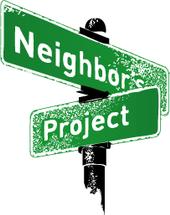Putting the neighbor back in neighborhood.
Let's be honest, you're not going to do something about gentrification by yelling at people in chat rooms or glaring at people on the street. We believe that the only way to even begin to deal with gentrification in your neighborhood is to start talking to your neighbors, especially the ones that don't look like you.Q: So what’s your big idea?
A: Neighbors Project believes strongly in the need for us younger city residents to connect one-on-one with our diverse neighbors in order to strengthen our neighborhoods. Our Neighbors Checklist is an accessible list of ideas of constructive things we can all do to get to know our neighbors. Even the busiest, most introverted people in the world will find something on the list that works for them.
Our list is based on the idea that we can't solve gentrification if we insist on making everything 'us versus them.' Our ideas are based on the reality that it's going take breaking down those barriers and working together toward common positive, pro-active visions of diverse, welcoming city communities for everyone.
Q: Why should we even want more younger adults in our cities and neighborhoods?
A: It is in the interest of everyone – old, young, urban and suburban – if our generation chooses to make homes in cities rather than eat up precious resources and perpetuate the inequality exacerbated by suburban sprawl. But no one has yet to answer the question: How can we become a positive force in our neighborhoods? It's up to all of us to create local solutions to this; getting to know our neighbors is the first step.
Q: Can I help permanently 'solve' gentrification?
A: Unfortunately, it's not quite that simple. City neighborhoods are in constant flux and will always to some extent be dealing with internal conflicts of territoriality, power dynamics and shifting identities. We can, however, do a lot to stabilize our neighborhoods by generating and supporting grassroots projects that benefit everyone in the community. The more involved, pro-active and willing to build relationships with anyone and everyone we are, the more likely we will be able to shape and manage gentrification in our neighborhoods.
Bonus: Check out our 7 Rules for Talking about Gentrification .
